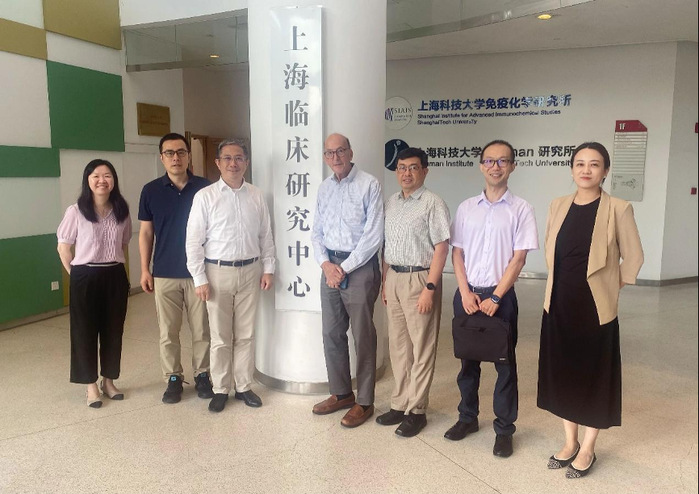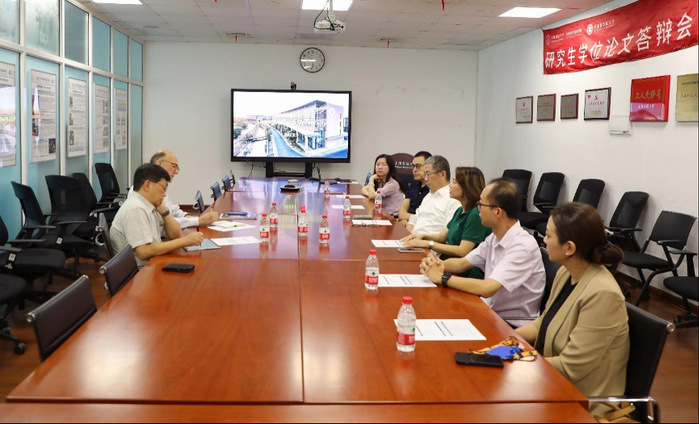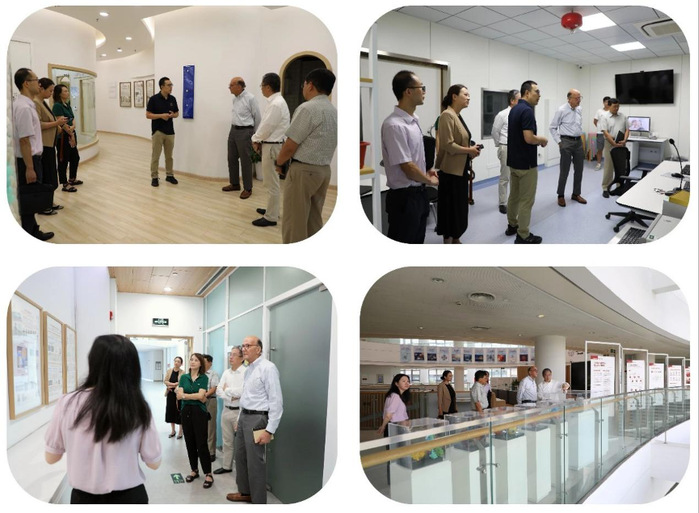On the morning of September 10, Dr. Roger I. Glass, President of the China Medical Board (CMB), and Li Wenkai, Chief Representative, Beijing Representative Office of CMB, visited ShanghaiTech University. Zhu Chouwen, Director of Shanghai Clinical Research and Trial Center (SCRTC), along with Hu Peng, Executive Dean of BME, and Lei Ying, Research Director of SCRTC warmly welcomed and received the CMB delegation. Also attending the reception were Susie Tan, Visiting Professor in SIAIS and Medical Director for the Asia-Pacific region at Virogin Biotech, Chen Jia, Associate Professor in SLST and co-founder of CorrectSequence Therapeutics, and Susan Mou, CEO of CorrectSequence Therapeutics.

Zhu Chouwen introduced the delegation to the educational philosophy, development history, teaching achievements, international cooperation, research progress, and technology transfer achievements of ShanghaiTech University. He also shared stories about the innovative concept, functional layout, and construction goals of the center and shared his insights into how to build research hospitals. During the discussion, experts presented their respective research fields and progress, engaging in detailed and in-depth discussions with the guests regarding potential areas of collaboration.
Dr. Glass, who has previously served as Deputy Director of the National Institutes of Health (NIH) in the United States, expressed his appreciation for ShanghaiTech University’s commitment to being a high-level international education institution, and for its achievements accomplished in the past decade. He specifically suggested that ShanghaiTech should consider hosting young American researchers in fields such as life sciences and biomedical engineering for collaborative research. He also recommended that the research results in biomedicine from the university and the center, as well as any future corresponding clinical research and trials, should have an international focus and benefit the global community.
Dr. Glass also stated that CMB is willing to establish formal connections with ShanghaiTech University and SCRTC during the process of developing a smooth and efficient cooperation mechanism, and he would provide necessary assistance for the collaboration between the two parties. At the same time, he expressed his hope that in the midst of significant global uncertainty, academic and personnel exchanges between China and the world, especially between China and the United States, could continue to be maintained and further advanced. At the conclusion of the meeting, Dr. Glass looked forward to further elaborating details and plans for the upcoming collaboration, and expressed his welcome to the experts from ShanghaiTech University to pay visits along with students to the CMB headquarters in Boston.

Before the meeting, Hu Peng showed the delegation around the Brain and Intelligence Development Laboratory (BID Lab) of BME, providing an overview of the large-scale infant and child cohort research project that was initiated in China for the first time. Through the visit guided by Lei Ying in the Collaborative Innovative Platform for Clinical Research and Translational Medicine, an exhibition area for the research and translation achievements of SIAIS, iHuman and SCRTC, the delegation gained a deeper and more concrete understanding of the development of biomedicine at ShanghaiTech.

The China Medical Board (CMB) was founded by the Rockefeller family in the United States in 1914, and was initially responsible for establishing Peking Union Medical College. Since then, CMB has been dedicated to supporting education and research in fields such as medicine, nursing, and public health, aiming to improve the health of the people in China and its neighboring Asian countries, and promote the development of health and healthcare.

